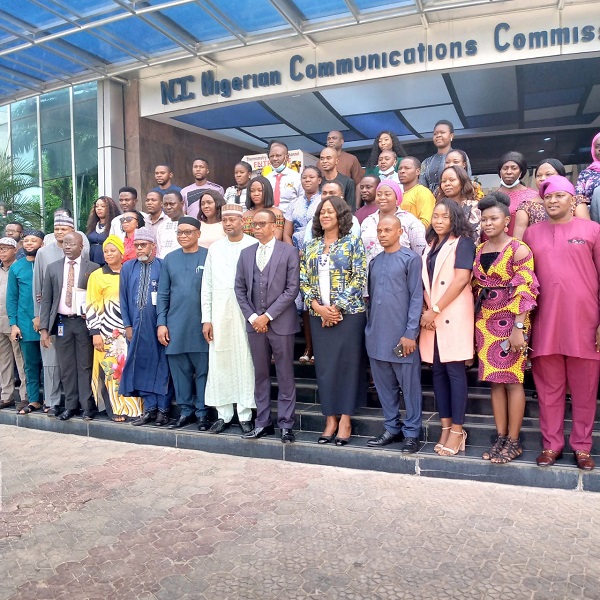
As Nigeria continues to battle recurrent insecurity, the Federal Government has explained that the restriction of having a maximum of 4 Subscriber’s Identity Modules (SIM) registered to a National Identity Number (NIN) is to enhance security in the country.
Speaking during a one-day capacity-building training for members of the Abuja chapter of the Nigerian Information Technology Reporters’ Association (NITRA) organised by the Nigerian Communications Commission (NCC) in Abuja, the NCC’s director, compliance monitoring and enforcement, Mr. Ephraim Nwokonanya, said it is to make it easier to identify owners of these lines to enable for effective identification and matching of these numbers.
According to him, this is to whittle down crime in the society with the knowledge that people who own these lines are responsible for any activity associated with the lines.
Represented by the head, compliance, monitoring and enforcement, NCC, Mr. Alkasim Umar, Nwokonanya pointed out that the new SIM linkage policy introduced by the government through the Ministry of Communications and Digital Economy has tightened the noose on criminals especially kidnappers, bandits and terrorists, making it very difficult for them to acquire and register SIM cards.
Giving updates on 5G deployment in Nigeria, the commission’s head, spectrum administration, Usman Aliyu, said the commission hopes the 5G services will be available within the country by the fourth quarter of this year.
He explained that the cleaning of the bands is ongoing with the migration of the FSS users from 3.4 GHz to 3.8 GHz spectrum following the ratification of the use of the Nigerian Communications Satellite by the National Frequency Management Council.
When deployed, he said, a lot of services would be enhanced with a resultant effect on the economic growth of the nation in education, health, financial services and improvement in the quality of service.
In his presentation “Understanding the issues around international termination rate (ITR) for voice services”, the head, competition and tariff policy, competition and economic analysis department at the commission, Mr. Sunday Atu, said the commission’s ITR policy is ultimately designed to cater for the interest of Nigeria and all telecoms’ stakeholders.
On the ITR rate floor price pegged at $0.0045, Atu said the commission utilised the best pricing modem to arrive at the figure; which is why the rate is neither too high nor too low.
“The rate should be fair, so that it will not be injurious to our balance of payments and the profitability of the operators”, he explained.
Earlier, in his welcome address, the director of public affairs, NCC, Dr. Ikechukwu Adinde said the capacity training is premised on the commission’s recognition of the important media practitioners in its daily activities.
“Let me be quick to mention that the commission recognises the importance of NITRA as a strategic ally and this accounts for why we have, on several occasions, provided capacity building and [held] training sessions for members of NITRA to provide the platform for equipping you as our stakeholders and partners from the media with the knowledge and skill required to do your jobs effectively, efficiently and in the most professional manner,” he said.
In his remarks, the NITRA, Abuja chapter president, Mr. Blessing Olaifa, represented by the chapter’s secretary-general, Mr. Emmanuel Elebeke, expressed the organisation’s profound appreciation to the NCC for organising the programme for NITRA members.
He noted that the relationship between the commission and the body has been cordial, spanning many years. He added that it was a thing of joy that the age-long mutually beneficial relationship has been sustained by the current management.


